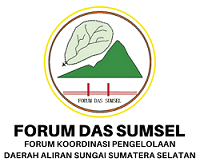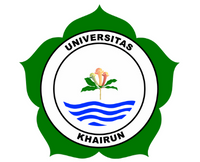Spatial Analysis of the Existence and Distribution of Medicinal Plants in Ghimbo Pomuan Customary Forest, Kampar Regency, Riau Province
Abstract
Keywords
Full Text:
PDFReferences
Andriyanti, dan Wahjudi, R.M. 2016. “Tingkat penerimaan penggunaan jamu sebagai alternatif penggunaan obat modern pada masyarakat ekonomi rendah-menengah dan atas. Masyarakat, Kebudayaan dan Politik, Vol. 29 No. 3 hal. 133–145.
Awang, M.A., Benjamin, M.A.Z., Anuar, A., Ismail, M.F., Ramaiya, S.D., and Mohd Hashim, S.N.A. 2023. “Dataset of gallic acid quantification and their antioxidant and anti-inflammatory activities of different solvent extractions from Kacip Fatimah (Labisia pumila Benth. & Hook. f.) leaves”. Data in Brief. 51, 109644. https://doi.org/10.1016/J.DIB.2023.109644
Beni, S. 2022a. “Jenis tumbuhan berkhasiat obat di kawasan Tembawang Ompu Obu Dusun Jambu Kabupaten Batang”. RISTEK : Jurnal Riset, Inovasi Dan Teknologi. 6(2): 62-71. https://doi.org/10.55686/ristek.v6i2.114
Choi, H-K, Kim, D-H, Kim, J.W., Ngadiran, S., Sarmidi, M.R., and Park, C.S. 2010. “Labisia pumila extract protects skin cells from photoaging caused by UVB irradiation”. Journal of Bioscience and Bioengineering. 109(3): 291-296. https://doi.org/10.1016/J.JBIOSC.2009.08.478
Faisal, A.P., Nasution, P.R., dan Wakidi, R.F. 2022. “Aktivitas antioksidan dari daun bintangur (Calophyllum inophyllum L.) TERHADAP radikal bebas dpph (1,1 Difenil-2-pikrihidrazil)”. Jurnal Riset Kefarmasian Indonesia. 4(1): 1-10. https://doi.org/10.33759/jrki.v4i1.200
Violet. 2018. Penapisan senyawa fitokimia ektrak daun bintangur (Callophyllum soulatri Burm F.). EnviroScienteae, Vol 14 No. 1 hal. 70-76.
Falah, F., Sayektiningsih, T., dan Noorcahyati. 2013. “Keragaman jenis dan pemanfaatan tumbuhan berkhasiat obat oleh masyarakat sekitar hutan lindung gunung beratus, Kalimantan Timur”. Jurnal Penelitian Hutan Dan Konserfasi Alam, Vol. 10 No. 1 hal. 1-18.
Fang, H.L., Liu, M.L., Li, S.Y., Song, W.Q., Ouyang, H., Xiao, Z.P., and Zhu, H.L. 2022. “Identification, potency evaluation, and mechanism clarification of ?-glucosidase inhibitors from tender leaves of Lithocarpus polystachyus Rehd”. Food Chemistry. 371, 131128. https://doi.org/10.1016/J.FOODCHEM.2021.131128
Farida, Y., Irpan, K., and Fithriani, L. 2014. “Antibacterial and antioxidant activity of keladi tikus leaves extract (Typhonium Flagelliforme) (Lodd) Blume”. Procedia Chemistry. 13: 209-213. https://doi.org/10.1016/J.PROCHE.2014.12.029
Fronika Sianipar, N., Purnamaningsih, R. Rosaria Rosiana. “Pengembangan tanaman keladi tikus (typhonium flagelliforme lodd.) asal Indonesia sebagai obat antikanker”. Ethos: Jurnal Penelitian dan Pengabdian Masyarakat. 4(1): 65-74. https://doi.org/10.29313/ethos.v0i0.1681
Karuniasa, M. 2019. “Prinsip-prinsip transformasi kebijakan pembangunan berkelanjutan dan pengendalian perubahan iklim berdasarkan paradigma systems thinking”. Wahana Forestra: Jurnal Kehutanan. 14(2): 13-29. https://doi.org/10.31849/forestra.v14i2.3514
Lai, C.S., Mas, R.H.M.H., Nair, N.K., Mansor, S.M., and Navaratnam, V. 2010. “Chemical constituents and in vitro anticancer activity of Typhonium flagelliforme (Araceae)”. Journal of Ethnopharmacology. 127 (2): 486-494. https://doi.org/10.1016/J.JEP.2009.10.009
Larissa, U., Wulan, A.J., dan Prabowo, A.Y. 2017. Pengaruh Binahong terhadap Luka Bakar Derajat II. Medical Journal of Lampung University. Vol. 7 No. 1 hal. 130-134.
Lei, M., Chen, N., Xu, Y., Gong, Q., and Gao, J. 2022. “Lithocarpus polystachyus (Sweet Tea) water extract promotes human hepatocytes HL7702 proliferation through activation of HGF/AKT/ERK signaling pathway”. Chinese Herbal Medicines. 14(4): 576-582. https://doi.org/10.1016/J.CHMED.2021.08.006
Lin, L., Wang, S., Zhang, J., Song, X., Zhang, D., Cheng, W., Cui, M., Long, Y., and Xing, Z. 2022. “Integrative analysis of transcriptome and metabolome reveals the effect of DNA methylation of chalcone isomerase gene in promoter region on Lithocarpus polystachyus Rehd flavonoids”. Synthetic and Systems Biotechnology. 7(3): 928-940. https://doi.org/10.1016/J.SYNBIO.2022.05.003
Lou, W., Mu, X., Liu, J., Xun, M., and Hu, Y. 2023. “Study on the differences of metabolites and their bioactivities of Lithocarpus under different processing methods”. Food Bioscience. 54, 102817. https://doi.org/10.1016/J.FBIO.2023.102817
Manshor, N.M., Razali, N., Jusoh, R.R., Asmawi, M.Z., Mohamed, N., Zainol, S., Altaf, R., and Dewa, A. 2020. “Vasorelaxant effect of water fraction of Labisia Pumila and its mechanisms in spontaneously hypertensive rats aortic ring preparation”. International Journal of Cardiology Hypertension. 4, 100024. https://doi.org/10.1016/J.IJCHY.2020.100024
Matatula, J., Poedjirahajoe, E., Satyawan, P., dan Sadono, R. 2019. “Sebaran spasial kondisi lingkungan hutan mangrove di Pesisir Pantai Kota Kupang”. Journal of Natural Resources and Environmental Management, Vol. 9 No.2 hal. 467–482.
Mengga, C., Rampe, M.J., dan Sangande, F. 2022. "Uji efektivitas antibakteri ekstrak daun binahong (Anredera cordifolia (Tenore) Steenis) terhadap bakteri Staphylococcus aureus. Jurnal Biofarmasetikal Tropis, Vol. 2022(1): 60-65.
Muis, H., dan Arianingsih, I. 2022. Analisis potensi dan pola penyebaran pohon berdasarkan topografi di Taman Nasional Lore Lindu menggunakan sistem informasi geografis. Warta Rimba : Jurnal Ilmiah Kehutanan, Vol. 10 No. 1 hal. 44-51.
Musaicho, D., Dirhamsyah, M., dan Yanti, H. 2021. “Pemanfaatan tumbuhan obat oleh masyarakat di Kelurahan Sebalo Kecamatan Bengkayang Kabupaten Bengkayang”. Jurnal Hutan Lestari, Vol. 9 No. 4 hal. 546-558.
Mustika, M., Herawatiningsih, R., dan Latifah, S. 2014. Keanekaragaman tumbuhan obat dalam kawasan hutan sekunder areal IUPHHK PT. Kalimantan Satya Kencana Kabupaten Melawi.Jurnal Hutan Lestari, Vol. 2 No.2 hal. 348-356
Ng, K.W., Tan, S.F., Looi, S.Y., Naimat, F., and Hamid, H. 2023. “Preclinical anticancer activity of Typhonium flagelliforme (Lodd.) Blume and its potential mechanism: A systematic review”. Journal of Traditional Chinese Medical Sciences. 10(4): 403-414. https://doi.org/10.1016/J.JTCMS.2023.09.009
Putra, M.A., Burhanuddin, dan Manurung, T.F. 2019. “Keanekaragaman jenis vegetasi di cagar alam Lho Fat Pun Pie Kecamatan Monterado Kabupaten Bengkayang”. Jurnal Hutan Lestari. 7 (1): 89-96. https://dx.doi.org/10.26418/jhl.v7i1.31003
Sukerti, N.N., dan Krisnawati, IG.A.A.A. 2018. “Sikap masyarakat adat bali terkait Putusan Pesamuhan Agung III Majelis Utama Desa Pakraman Propinsi Bali Tahun 2010”. Journal of Indonesian Adat Law. 2(1): 68–69. https://doi.org/10.46816/jial.v2i1.8
Rahman, K., Wardenaar, E., dan Mariani, Y. 2019. “Identifikasi jenis dan pemanfaatan tumbuhan obat di hutan tembawang oleh masyarakat Kelurahan Beringin Kecamatan Kapuas Kabupaten Sanggau”. Jurnal Hutan Lestari. 7(1): 44–55. https://doi.org/10.26418/jhl.v7i1.30996
Rani, D.M., Wongso, H., Purwoko, R.Y., Winarto, N.B., Shalas, A.F., Triatmoko, B., Pratama, A.N.W., Keller, P.A., and Nugraha, A.S. 2023. “Anti-cancer bioprospecting on medicinal plants from Indonesia: A review”. Phytochemistry. 216, 113881. https://doi.org/10.1016/J.PHYTOCHEM.2023.113881
Sakdiah, S., Milzam, H., dan Roziana, R. 2021. “Uji efektivitas salep ekstrak daun binahong (Anredera cordifolia (Ten.) Steenis.) terhadap penyembuhan luka bakar derajat iii pada tikus putih (Rattus norvegicus) jantan strain wistar”. Jurnal Kedokteran Syiah Kuala. 21(3): 257-265. https://doi.org/10.24815/jks.v21i3.23041
Sezavar, N., Pazhouhanfar, M., Van Dongen, R.P., and Grahn, P. 2023. “The importance of designing the spatial distribution and density of vegetation in urban parks for increased experience of safety”. Journal of Cleaner Production. 403, 136768. https://doi.org/10.1016/J.JCLEPRO.2023.136768
Sugiyarto, L., and Kuswandi, P.C. 2014. The Effect of 2,4-Dichlorophenoxyacetic Acid (2,4-D) and Benzyl Aminopurin (BAP) on callus growth of Binahong Leaf (Anredera cordifolia L.) and analysis of total flavonoid content. Vol. 19 No.1 Pp. 23-30.
Sulistyarsi, A., dan Pribadi, N. W. 2018. “Uji aktivitas antibakteri ekstrak daun binahong (Anredera cordifolia (Ten.) Steenis) terhadap pertumbuhan bakteri Staphylococcus aureus dan Pseudomonas aeruginosa”. Journal of Pharmaceutical Science and Medical Research. Vol. 1 No. 1 hal. 26-36.
Sumiadi, R., dan Ramzi, M. 2022. “Pendidikan karakter berbasis kearifan lokal sebagai resolusi konflik dalam menjaga hutan adat pada masyarakat Wetu Telu di Bayan”. IJERT: Indonesian Journal of Education Research and Technology, Vol. 2 No. 2 hal. 13-18.
Syamsul, H. 2014. Sebaran Spasial Spesies Pohon Dominan di Kawasan Hutan Wornojiwo, Kebun Raya Cibodas Media Konservasi. 19 (2): 88-94. https://dx.doi.org/10.29243/medkon.19.2.%p
Tudjuka, K., Ningsih, S., dan Toknok, B. 2014. “Keanekaragaman jenis tumbuhan obat pada kawasan hutan lindung di Desa Tindoli Kecamatan Pamona Tenggara Kabupaten Poso”. Warta Rimba, Vol. 2 No. 1 hal. 120-128.
Wei, W.W., Wu, P., You, X.Y., Xue, J.H., Xu, L.X., and Wei, X.Y. 2021. “Dihydrochalcones from the leaves of Lithocarpus litseifolius”. Journal of Asian Natural Products Research. 23(9): 819-824. https://doi.org/10.1080/10286020.2020.1786067
Witno, Puspaningsih, N., dan Kuncahyo, B. 2019. “Pola sebaran spasial biomassa di areal revegetasi bekas tambang nikel”. Bonita: Jurnal Penelitian Kehutanan, Vol. 1 No. 2 hal. 1–9.
Zakaria, A. A., Noor, M.H.M., Ahmad, H., Hassim, H.A., Mazlan, M., and Latip, M.Q.A. 2021. “A Review on Therapeutic Effects of Labisia pumila on Female Reproductive Diseases”. BioMed Research International. Vol. 2021. https://doi.org/10.1155/2021/9928199
Zhao, D., Sun, M., Xue, Y., Yang, Q., Liu, B., Jia, B., Song, C., Zhang, S., and Zhang, Z. 2023. “Spatial variations of plant species diversity in urban soil seed banks in Beijing, China: Implications for plant regeneration and succession”. Urban Forestry & Urban Greening. 86, 128012. https://doi.org/10.1016/J.UFUG.2023.128012
Zikri, A., Desyanti, dan Susilastri. 2021. “Pemanfaatan tumbuhan obat oleh masyarakat di Hutan Kemasyarakatan Pasada Roha Kecamatan Sungai Aur Kabupaten Pasaman Barat”. Strofor Journal, Vol. 5 No.2, 718-726.
DOI: https://doi.org/10.32502/jgsa.v4i1.7335
Refbacks
- There are currently no refbacks.
Indexed by:
Journal of Global Sustainable Agriculture
Diterbitkan oleh Fakultas Pertanian, Universitas Muhammadiyah Palembang
Contact Person:
Rika Puspita Sari, M.Si (+62 813-7490-0341)
Klinik Publikasi Pertanian
Faculty of Agriculture, Universitas Muhamamdiyah Palembang
JL. Jend. A. Yani 13 Ulu Palembang, South Sumatra, Indonesia
Tel. (+62)711-511731; Email: kppfpump@gmail.com; Website: https://jurnal.um-palembang.ac.id/JGSA

This work is licensed under a Creative Commons Attribution 4.0 International License.







1.png)

13.png)





